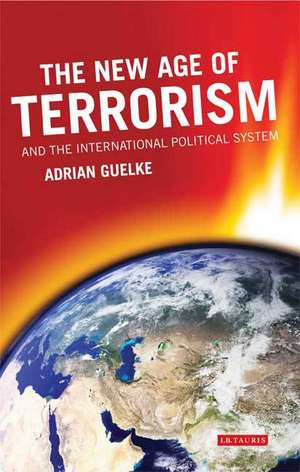The New Age of Terrorism and the International Political System
Autor Adrian Guelkeen Limba Engleză Paperback – 26 noi 2008
Preț: 152.28 lei
Preț vechi: 176.39 lei
-14% Nou
Puncte Express: 228
Preț estimativ în valută:
29.14€ • 30.11$ • 24.24£
29.14€ • 30.11$ • 24.24£
Cartea nu se mai tipărește
Doresc să fiu notificat când acest titlu va fi disponibil:
Se trimite...
Preluare comenzi: 021 569.72.76
Specificații
ISBN-13: 9781845118037
ISBN-10: 1845118030
Pagini: 264
Dimensiuni: 138 x 216 x 19 mm
Greutate: 0.3 kg
Editura: Bloomsbury Publishing
Colecția I.B.Tauris
Locul publicării:London, United Kingdom
ISBN-10: 1845118030
Pagini: 264
Dimensiuni: 138 x 216 x 19 mm
Greutate: 0.3 kg
Editura: Bloomsbury Publishing
Colecția I.B.Tauris
Locul publicării:London, United Kingdom
Notă biografică
Adrian Guelke is Professor of Comparative Politics at the Centre for the Study of Ethnic Conflict, Queen's University, Belfast. He is the author of South Africa in Transition and Terrorism and Global Disorder (both published by IB Tauris).
Cuprins
List of TablesNew Preface for the Revised EditionPrefaceIntroduction: barriers to understanding terrorismDistinguishing terrorism from other forms of violenceThe poverty of general explanationsVarieties of terrorismsThe legitimization of terrorOn the fringe: political violence in stable democraciesBomb culture: the case of Northern IrelandViolence, inequality and the Third WorldThe international dimensions of terrorismStopping terrorismConclusion: the end of terrorism?AfterwordEpilogueNotesConcise bibliographyIndex
